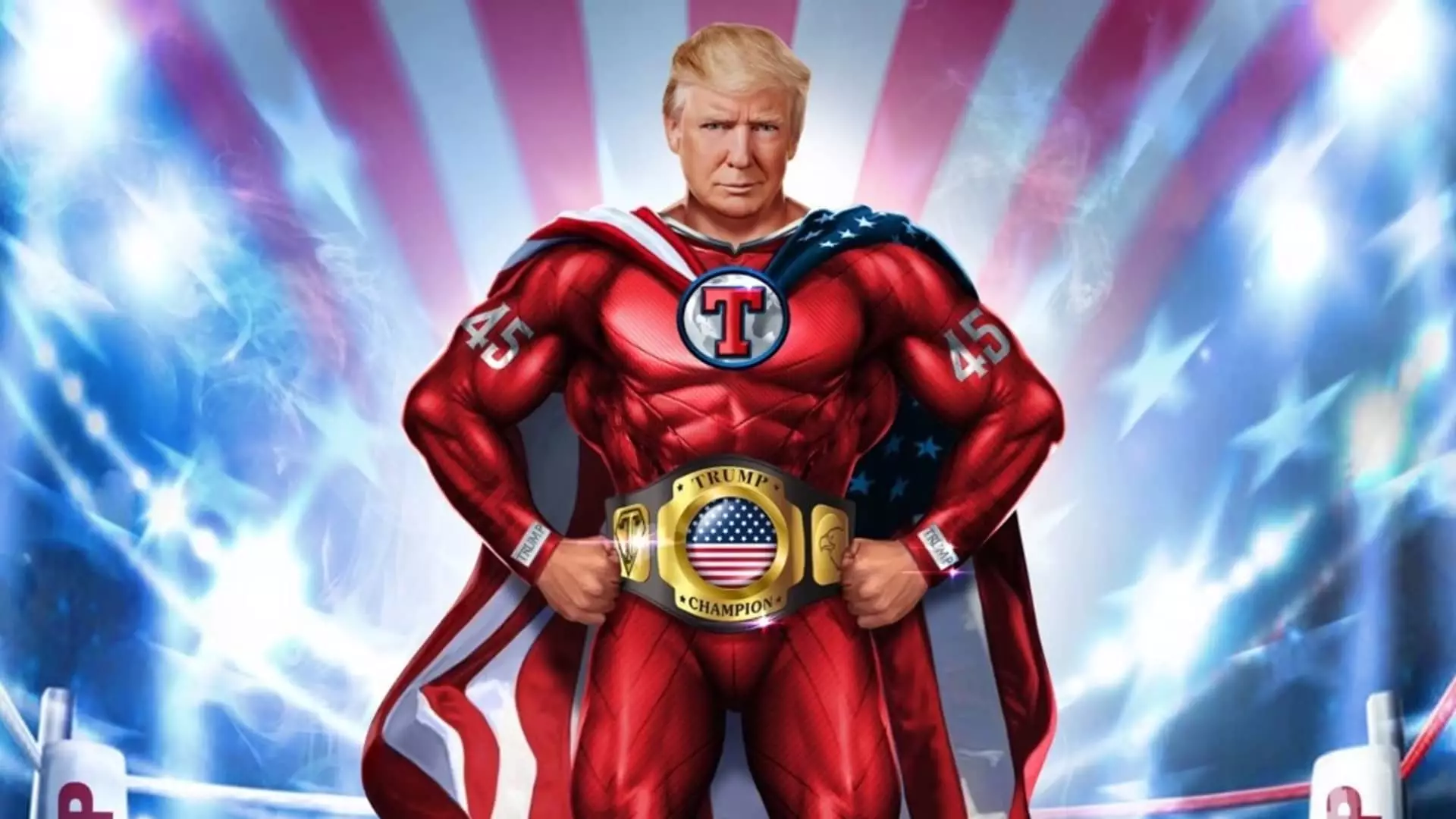In the tumultuous landscape of digital currencies, the intersection of politics and cryptocurrency is a spectacle few anticipated, yet here we are—Donald Trump is poised to launch a cryptocurrency project aptly named World Liberty Financial (WLF) just weeks before a pivotal presidential election. This announcement breathes new life into Trump’s entrepreneurial spirit, which has been marred by his political controversies and past business ventures. As the world watches the unfolding drama, prospective investors are left with more questions than answers about WLF and its broader implications for finance and politics.
With only three weeks remaining until the presidential elections, Trump’s timing appears strategic. Amidst his return to the political stage, he seems keen to leverage cryptocurrency as a means to enhance his celebrity status while potentially garnering support from a tech-savvy demographic. By positioning WLF as a revolutionary force in the finance sector, Trump is actively crafting a narrative that appeals to both his loyal supporters and curious investors. However, one must question the motives behind this urgency—could it be a mere publicity stunt, or is there genuine innovation on the horizon?
At its core, the WLF project is marketed as a form of cryptocurrency banking, where users can lend, borrow, and invest in digital assets. Yet, the project lacks critical documentation; no white paper has been released to detail its intentions, methodologies, or technological underpinnings. Instead, enthusiasts are directed to a road map outlining plans for fundraising—aiming to raise $300 million at an astounding $1.5 billion valuation. But what does this really mean for the informed investor? Given the current landscape where many cryptocurrency projects have fallen into disrepute due to scams or non-viable business models, investors should approach WLF cautiously, weighing the credibility of its founders against the backdrop of their past endeavors.
Insight into WLF reveals a complicated ownership structure that raises eyebrows. Trump holds about 57% of DJT (Trump Media & Technology Group), which operates independently of WLF. However, the lack of transparency regarding his financial involvement in World Liberty raises significant concerns. The notion that 20% of WLF’s tokens are designated for the founding team, which allegedly includes members of Trump’s family, suggests a focus on personal gains more than solidifying the platform’s mission. Moreover, beyond mere ownership, there appears to be a multi-faceted financial incentive for the creators of WLF, a fact that may deter would-be investors who seek accountability and clarity.
WLF’s framework promises token holders voting rights on platform initiatives, thus fortifying the project as a “governance token.” Yet, the distinctive clarity regarding what this governance entails remains elusive. The project functions under Regulation D, a provision enabling it to bypass certain SEC regulations, allowing it to cater primarily to accredited investors, i.e., those with net worth exceeding $1 million. This limitation potentially alienates a broader audience, confining participation to a select group. With over 100,000 individuals allegedly on the whitelist, the sheer volume raises questions about the vetting process and the integrity of potential investments.
Moreover, just days before the token’s debut, the founders convened a discussion to address queries about the platform. Participants raised critical concerns regarding the project’s ties to controversial figures, further polarizing the discussion. One comment highlighted the risk posed by the crypto venture and its management. Such concerns spotlight a crucial feature of cryptocurrency ventures—the evaluation of the credibility, background, and ethics of contributors.
As cryptocurrency ventures continue to spring up like weeds, regulation is a looming specter. WLF’s effort to get approval from the decentralized finance (DeFi) ecosystem Aave underscores the demand for a standardized framework for legitimacy. The sentiment from Aave’s founder echoes this sentiment as he indicates excitement but also caution regarding the collaboration. If the cryptocurrency fails to gain traction or meet governance standards imposed by Aave, investors may find themselves holding assets with little to no value.
World Liberty Financial is emblematic of the ever-blurring lines between politics, celebrity, and business within the realm of cryptocurrency. While the initial allure of participating in this venture may entice many, a prudent investor must grapple with the critical questions of transparency, governance, and risk management. As WLF embarks on this journey, observers will undoubtedly remain cautious yet hopeful that innovation can indeed emerge from the political arena, provided it is backed by sincerity and strategic foresight. In the volatile world of crypto—and in business—caution is often the best investment strategy.


Leave a Reply